Dogs frequently sneeze, but occasionally you could notice that your dog is sneezing more frequently or at odd times. This article looks at the reasons for your question, “Why Is My Dog Sneezing?” and what that can mean for your dog. It’s usual, natural, and adorable to watch a dog sneeze! What does a dog’s sneeze indicate, and why do they do it?
In contrast to what sneezing often indicates in humans, sneezing in dogs doesn’t always indicate that your dog is sick. Dogs sneeze for a variety of reasons. It may be caused by something more serious, such as an allergic response to dust. Or perhaps it’s a “play sneeze”—more on that in a moment. Everything depends on how frequently your dog sneezes and the colour of the discharge.
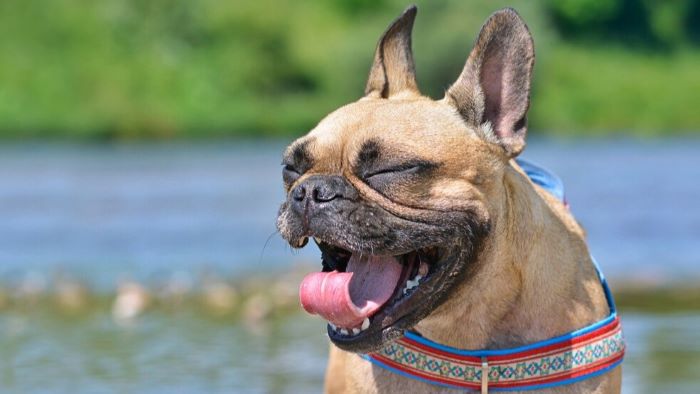
Causes of Dog Sneezing
There are several explanations for your dog’s sneezing. It can be a nasal irritant such as pollen, household goods, dust, or perfume. Dog sneezing can sometimes occur from anything being lodged in their nose, such as dirt from digging! Here are some of the causes explained:
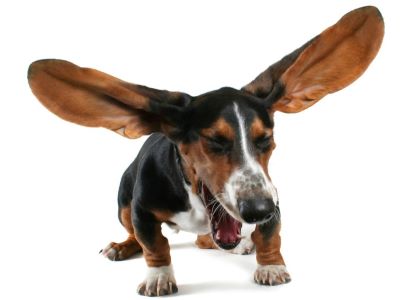
Allergies in dogs
Dogs are susceptible to allergies, just like people are. Dust, pollen, and certain foods are just a few of the environmental factors that can cause allergic reactions in dogs. Sneezing is often an indication of allergies in dogs. If the allergen is found and exposure to it is managed, your dog could sneeze less. This may include modifying their eating habits and way of life, or, in certain cases, using prescription antihistamines.[1]
Foreign Objects
Dogs are naturally curious creatures, so their investigation may have unanticipated consequences. When experimenting or fiddling with objects, foreign materials can be breathed in. Sneezing is a dog’s natural response to anything strange in its body. If you notice frequent sneezing and suspect a foreign object may be the cause, it’s critical to get in touch with a veterinarian right away. After considering the situation, they could decide how best to safely remove any stuck objects.
Respiratory Infections
Because of respiratory illnesses like kennel cough, dogs can sneeze. Behavioural abnormalities, nasal discharge, coughing, and other symptoms are frequently linked to these illnesses. If your dog shows signs of a respiratory infection, you must take them to the vet. It is solely a veterinarian’s job to determine the exact type of infection and to recommend a course of therapy that may include medicine or antibiotics.
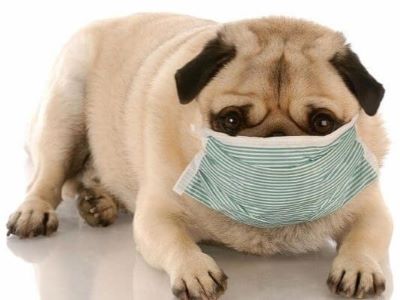
Dental Issues
Unexpectedly, dental issues can cause dogs to sneeze. Canine sneezing may occur as a reaction to discomfort caused by tooth abscesses or infections. Maintaining your dog’s general health requires routine dental care and examinations. It is best to speak with a veterinarian right away to address dental difficulties if other indications of oral health problems accompany sneezing.
Symptoms of Sneezing Dogs
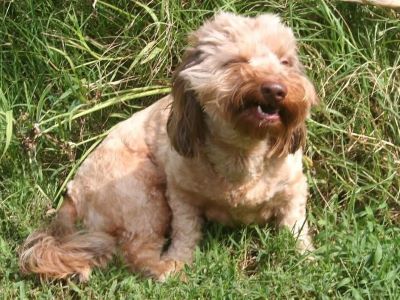
The majority of the time, your dog’s sneezing is the result of an upper nasal passage trigger. The dog will then sneeze to release the inflammation, exactly like humans do! There could be a lot of other reasons for your dog to sneeze, like the following:
Excessive Sneezing
It’s usually accepted that an occasional sneeze by your dog is natural. On the other hand, if you see an abrupt increase in the frequency of sneezes, it might indicate a problem. Dogs that sneeze often may also exhibit other signs like tiredness, changes in appetite, or nasal discharge. Keeping an eye out for these extra indicators can reveal important details regarding the reason behind your dog’s sneeze.
Nasal Discharge
It’s critical to consider the type and hue of nasal discharge. It is common for clear mucus to emerge after your dog has been nose-exploring. On the other hand, nasal discharge that is green or yellow may be an infection. The discharge’s hue and consistency can provide information regarding the specifics of the issue. See a veterinarian for a complete examination and a suitable diagnosis if you have abnormal nasal discharge in addition to sneezing.
Treating Excessive Sneezing
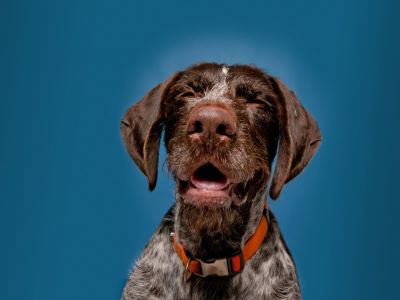
Just as you cannot stop yourself from sneezing, neither can you stop your dog from sneezing. Sneezing a few times now and then is probably a perfectly normal response to something irritating their nose. If you can, try opening the windows to let some fresh air into the room, or, if that’s not feasible, take them outside to see if that helps soothe their stuffy nose.
It is best to contact a veterinarian to treat any underlying issues if the sneezing is severe or accompanied by other symptoms like bleeding or wheezing.[2]
Manage The Allergies Of Your Pet
Your veterinarian might suggest allergy control techniques if allergies cause your dog’s sneezing. This might entail recognizing certain allergens and reducing your exposure to them. Dietary adjustments or the addition of hypoallergenic foods may be advised in specific circumstances. Your veterinarian may prescribe antihistamines to help with allergy symptoms, such as sneezing.
Removing and Cleaning Foreign Objects
Normally, sneezing aids in the dog’s natural expulsion of the object, but if their nose is bleeding or they continue to paw at it while sneezing, you should contact your veterinarian, as they might need to remove the thing.
Antibiotics for Infections
If a respiratory ailment, such as kennel cough, is the cause of your sneezing, you can be prescribed antibiotics. The precise type of antibiotic and duration of medication needed will depend on the diagnosis your veterinarian makes. You must follow the advised treatment plan to ensure that the infection is eradicated.
When Is A Sneeze A False Alarm?
A sneeze in a dog isn’t always a sneeze. Sometimes your dog will snort, which is healthy but usually means an obstruction in the upper airway. To have this checked out, you should take your dog to the veterinarian. Your dog may snort if they are overweight because it may be harder for them to breathe.
Your dog may be sneezing in reverse. Small-breed dogs and brachycephalic breeds are most likely to exhibit this. A sudden, loud noise similar to a honk is produced when air is forcefully and rapidly drawn into the nose during a reverse sneeze.
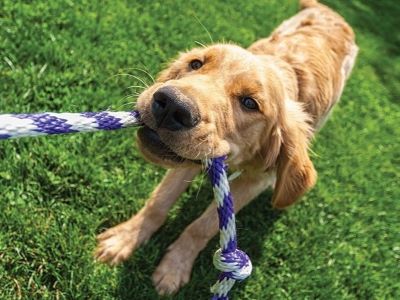
Some owners even believe the dog appears to be laughing. To make the sound, your dog will also stand with their elbows apart and their heads facing either forward or backward. Treating reverse sneezing in dogs is not usually necessary, so you shouldn’t be concerned if your dog exhibits this behaviour.
FAQs
Why is My Dog Sneezing?
Like us, they sometimes sneeze when their nose is irritated. For dogs, it’s typically caused by dust, pollen, or something that’s stuck up their nose after rummaging in the undergrowth.
Can Dogs Catch Colds from Humans?
No, humans cannot give a cold to a dog. There are differences between the viruses that infect dogs and humans. If your dog is sneezing a lot, other reasons including allergies or illnesses are probably to blame.
Should I Worry if My Dog Sneezes Occasionally?
Sneezing once in a while is common and usually not a reason for alarm. Like us, dogs sneeze to clean their nasal passages. A veterinarian visit is advised, nevertheless, if the sneeze starts to happen frequently or if it is accompanied by other symptoms.
Can Allergies Develop in Dogs Suddenly?
Dogs can indeed acquire allergies abruptly. A person’s genetic makeup, exposure to novel chemicals, or environmental changes can all cause allergic responses. For advice on how to treat allergies that manifest as sneezing, itching, or red eyes, speak with your veterinarian.
How Can I Make My Home Safer for My Sneezing Dog?
Your dog will feel safer in an atmosphere free of possible allergies, where you may keep the living area tidy and, if necessary, employ air purifiers. Make sure your dog’s bedding is cleaned regularly and securely store home chemicals. It is advised to speak with your veterinarian for particular guidance on your dog’s health.
Conclusion
This article concludes the topic “Why is My Dog Sneezing?”. Dogs will occasionally sneeze just for fun or to get attention. Though extra playtime and at-home training will always help, these “fake” sneezes are quite normal.
Other times, a medical problem like allergies, infections, or mite infestations may be the cause of your dog’s sneezing and necessitate veterinary care.
Most likely, it doesn’t matter much if your dog sneezes. However, if your dog exhibits additional symptoms in addition to sneezing, such as a bloody nose, difficulty breathing, or resistance to having their head touched, it may indicate that there is a problem with their sniffer. Therefore, you should take them to the veterinarian as soon as you can.
References:



